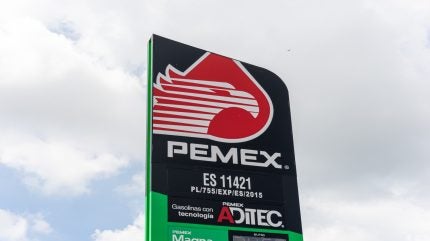
Mexican state oil company Pemex is planning to reduce the activity of its exploration and production (E&P) arm in the last quarter of the year, reported Reuters, citing an internal document.
This strategic move is expected to save the company up to 26.8bn pesos ($1.35bn).

Discover B2B Marketing That Performs
Combine business intelligence and editorial excellence to reach engaged professionals across 36 leading media platforms.
The document revealed that to “optimise resources”, Pemex would defer some planned works and acquisitions until 2025.
The internal company letter, signed by Nestor Martinez, who was appointed by Mexican President Claudia Sheinbaum to lead the E&P arm, indicates a prioritisation of investments in higher-producing wells and a postponement of certain administrative and production tasks.
Until the end of the year, Pemex will focus on its most productive wells, while deferring other activities including covering wells and acquiring seismic equipment necessary for exploration.
The company, which is heavily indebted, has not yet commented on the reasons for the spending cuts or their potential impact on crude oil production.

US Tariffs are shifting - will you react or anticipate?
Don’t let policy changes catch you off guard. Stay proactive with real-time data and expert analysis.
By GlobalDataUnder President Sheinbaum’s six-year administration, Pemex aims to maintain an average crude oil production of 1.8 million barrels per day (mbbl/d).
Currently, the company’s output stands at an average of 1.5mbbl/d, which reaches 1.8mbbl/d when condensate is included.
In August 2024, Mexico’s incoming administration planned to encourage equity partnerships between Pemex and private companies.
This initiative was aimed at bolstering oil reserves and addressing the company’s substantial debt, which included financial obligations of roughly $100bn and provider debt of around $20bn.
The new government considered a return to farm-out agreements, which were previously unpopular under President Andres Manuel Lopez Obrador but allowed for collaboration with private and foreign companies on E&P projects.





